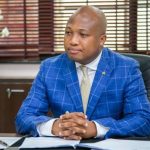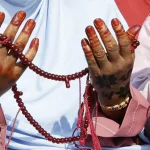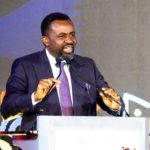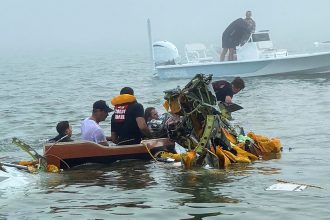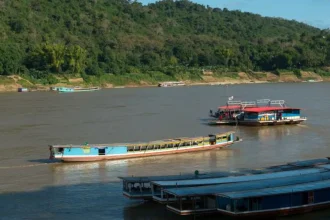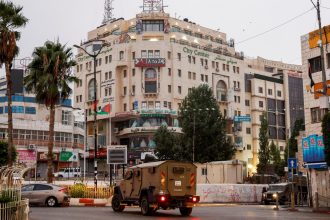This week in New York, as he listened to questions from reporters, Canadian Prime Minister Justin Trudeau’s reliable smile began to fade.
Unsurprisingly, nearly all the questions were about India and the shocking allegation made by Mr Trudeau earlier in the week: there was credible evidence the Indian government had participated in the extrajudicial killing of a Canadian citizen on Canadian soil, a Sikh activist whom India has accused of terrorism.
Delhi has denied having anything to do with the murder.
Speaking slowly, carefully, the prime minister stuck closely to his talking points. “We’re not looking to provoke or cause problems,” he said. “We’re standing up for the rules-based order.”
But where, several reporters asked, were Canada’s allies? “So far in time,” one journalist said to Mr Trudeau, “you seem to be alone”.
In the public eye at least, Mr Trudeau has appeared to be left largely on his own as he goes toe to toe with India, one of the world’s fastest-growing economies, with a population 35 times bigger than Canada’s.
In the days since the prime minister made the explosive announcement, his allies in the Five Eyes intelligence alliance provided seemingly boilerplate public statements, all stopping far short of full-throated support.
UK Foreign Secretary James Cleverly said his country took “very seriously the things that Canada are saying”. Using nearly identical language, Australia said it was “deeply concerned” by the accusations.
But perhaps the most deafening silence came from Canada’s southern neighbour, the United States. The two countries are close allies, but the US did not speak up with outrage on Canada’s behalf.
When President Joe Biden publicly raised India this week, while speaking at the UN, it was not to condemn, but to praise the country for helping to establish a new economic pathway.
Mr Biden’s National Security Adviser Jake Sullivan later denied that there was a “wedge” between the US and its neighbour, saying Canada was being closely consulted. But other public statements were tepid, more nods to “deep concern”, coupled with affirmations of India’s growing importance to the Western world.
The problem for Canada, experts told the BBC, is that its interests currently pale in comparison to India’s massive strategic importance.
“The United States, the UK, and all these Western and Indo-Pacific allies have built a strategy that largely focuses on India, to be a bulwark and counterweight to China. That’s something they can’t afford to toss out the window,” said Xavier Delgado, a researcher at the Wilson Center’s Canada Institute.
“The fact that they haven’t come out and rushed to Canada’s defence is indicative of the geopolitical reality.”
Speaking to Canadian network CTV, US Ambassador to Canada David Cohen confirmed reports that the Five Eyes partners had shared intelligence on the matter. But on a report that those same allies had rebuffed an appeal from Canada to publicly condemn the murder he said only that he was “not in the habit of commenting on private diplomatic conversations”.
Still, the relative quiet may also be indicative of Canada’s shortcomings on the world stage – a dependable Western ally, but not a global power in its own right.
“This is a moment of weakness,” said Christopher Sands, director of the Canada Institute.
“Right now we’re seeing a hard power moment. That is not the environment where Canada shines,” he said. “The decisive stuff is all force, power and money, which Canada doesn’t have.”
Few outside India took issue with Mr Trudeau’s decision to publicly disclose the allegations which, if true, would amount to a political assassination on Canadian soil at the hands of a fellow democracy. But those ethics may not be enough to shift global headwinds.
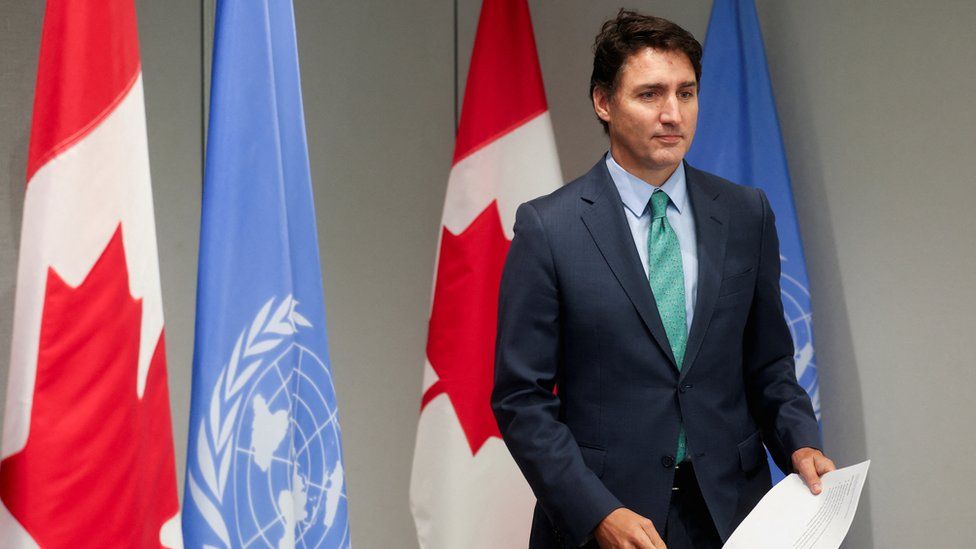
For Mr Trudeau, that cold geopolitical reality meant an apparently solitary few days while the tensions with India dialled up higher and higher – diplomatic expulsions, travel advisories and, most dramatically, a suspension of all visa services for Canadians seeking to travel to India.
To add insult to injury, this long week comes at the end of an even longer summer for Canada’s Liberal leader.
As Canadians struggled with inflation and high interest rates, news broke of alleged Chinese interference in Canadian elections, which critics said Mr Trudeau and his cabinet were aware of, but failed to take seriously.
Then it came out that the country’s most notorious serial killer Paul Bernardo was being transferred to a medium-security prison, inspiring country-wide outrage. Once again, Mr Trudeau’s team faced criticism that it had been caught flat-footed.
By September, Mr Trudeau’s approval ratings had dropped to a three-year low, with 63% of Canadians disapproving of their prime minister, who was elected in 2015.
“He’s not been lower than that over an eight-year period,” said Shachi Kurl, president of Angus Reid Institute, a non-partisan research group. “There were questions being put to him very squarely, like ‘are you going to stick around? Will you resign?'”
It’s another cold reality for Mr Trudeau, who started in the prime minister’s office as a minor national star, with a sweeping majority mandate.
“He’s a celebrity like we’ve never seen in Canadian politics,” said Campbell Clark, chief political writer for the Globe and Mail newspaper. “And after he won the election, his popularity soared.”
But after eight years of a highly visible prime minister, Canadians may have had their fill, Mr Clark said, noting it feels like Mr Trudeau’s star power has faded, especially in recent months.
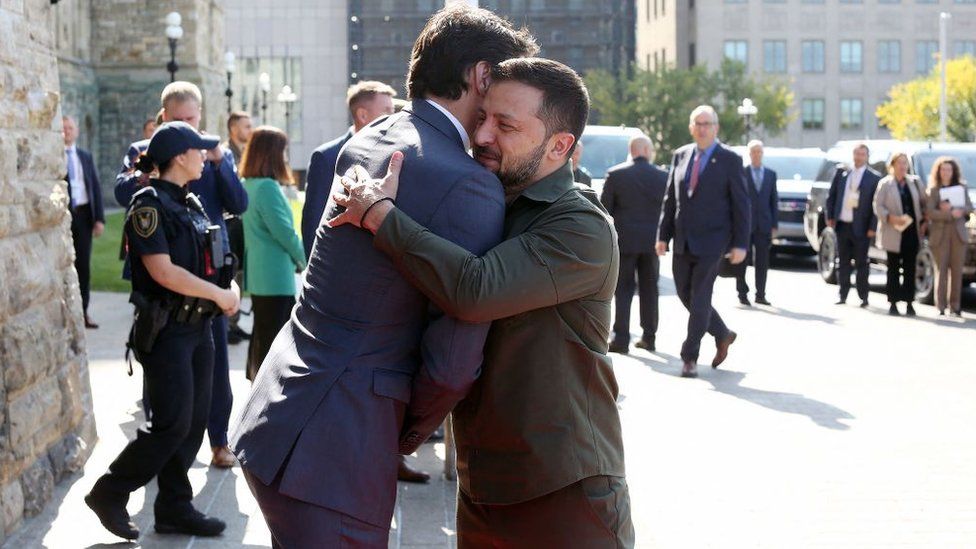
Still, some experts cautioned that while Mr Trudeau may seem to be standing alone on the international stage, this row with India may provide a much-needed bump at home.
“It got him away from all of these domestic questions,” Mr Clark said.
And it can’t have hurt that Mr Trudeau finished his week standing side by side with another ally – and an even bigger celebrity – Ukrainian President Volodymyr Zelensky. For a day, at least, Mr Trudeau seemed to be in very good company.




